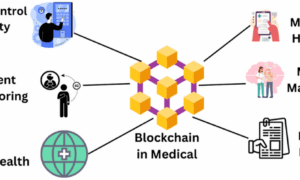The technology sector continues to evolve at a rapid pace, creating exciting career opportunities across various industries. As innovations in artificial intelligence, cloud computing, and data analytics reshape the business landscape, professionals with the right skills and knowledge are in high demand. This article explores the future of tech careers, focusing on two dynamic sectors: semiconductors and financial technology.
The semiconductor industry: A driving force in technology
Semiconductors are the building blocks of modern technology, powering everything from smartphones to autonomous vehicles. As the demand for more advanced and efficient chips grows larger, so does the need for skilled professionals in this field. The semiconductor industry offers a wide range of career opportunities, from design and manufacturing to research and development.
For those interested in pushing the boundaries of technology, asml jobs provide exciting prospects in the cutting-edge field of lithography systems. These roles often involve working with state-of-the-art equipment and contributing to the development of next-generation chips that will power future innovations within the semiconductor industry.
Financial technology: Reshaping the banking sector
The financial industry is undergoing a large-scale digital transformation, with fintech companies and traditional banks alike embracing new technologies to improve customer experiences and streamline their operations. This shift has created a surge in demand for professionals who can bridge the gap between finance and technology.
Digital banking is at the forefront of this transformation, offering opportunities for those with expertise in areas such as mobile app development, cybersecurity, and data analytics. Ing jobs in the fintech space often involve working on innovative projects that are reshaping the way people manage their finances and interact with banking services.
Skills for success in tech-driven industries
To thrive in these rapidly evolving industries, professionals need a combination of technical expertise and soft skills. Some of the most in-demand technical skills include:
- Programming languages (e.g., Python, Java, C++)
- Data analysis and machine learning
- Cloud computing and cybersecurity
- Semiconductor design and manufacturing processes
- Blockchain and distributed ledger technologies
Nevertheless, technical skills alone are not enough. Potential employers will also value soft skills such as problem-solving, adaptability, and effective communication. The ability to work collaboratively in cross-functional teams and to explain complex technical concepts to non-technical stakeholders is crucial for career advancement in both the semiconductor and fintech industries.
Navigating the job market in high-tech industries
When searching for opportunities in these competitive fields, it’s essential to leverage various resources and strategies. Online job boards, industry-specific forums, and professional networking sites can be valuable sources of information about available positions and industry trends. You should tailor your resume and cover letter to highlight any relevant skills and experiences to stand out in the application process. You could also showcase personal projects or contributions to open-source initiatives. Furthermore, it’s extremely important to stay informed about industry developments in order to be prepared to discuss them during interviews. Consider as well obtaining relevant certifications to demonstrate your expertise and commitment to professional development.
The impact of innovation on career trajectories
As technology continues to advance, the nature of work in both the semiconductor and financial industries will evolve. Professionals in these fields must embrace continuous learning and adaptability to stay relevant and advance their careers. This may involve keeping up with emerging technologies, attending industry conferences, or pursuing advanced degrees or specialized training programs.
By staying ahead of the curve and developing a diverse set of skills, you can future-proof your tech career and position yourself for long-term success in these dynamic and rewarding industries. Whether you’re passionate about developing cutting-edge semiconductor technologies or revolutionizing the world of finance through digital innovation, the future of tech careers offers endless possibilities for growth and impact.































